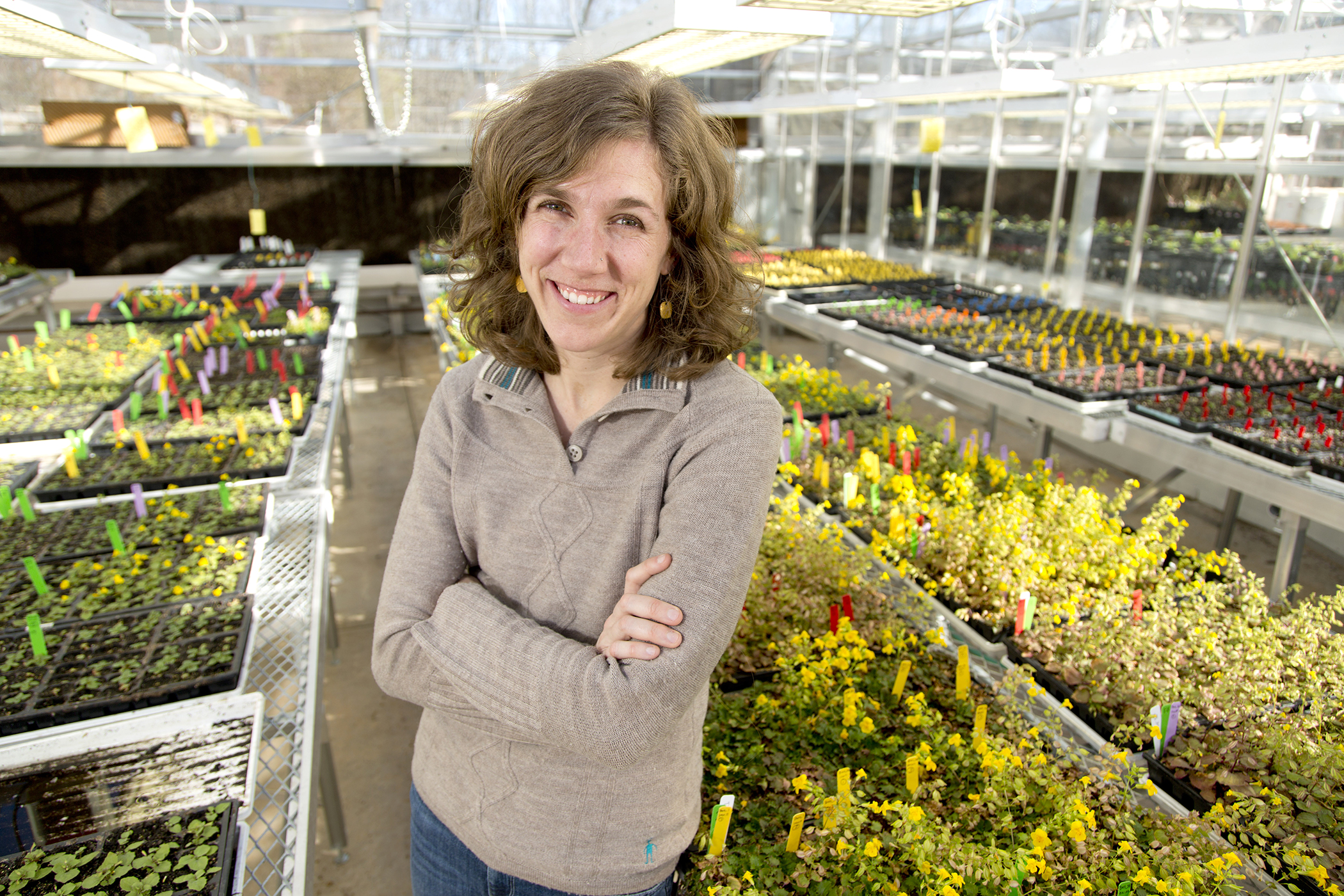Athens, Ga. – Andrea Sweigart and David Nelson, assistant professors in the department of genetics in the University of Georgia Franklin College of Arts and Sciences, have each been awarded grants from the National Science Foundation Faculty Early Career Development Program. The five-year, $1 million grants support junior faculty who exemplify the role of teacher-scholars and the integration of education and research within the context of the mission of their organizations.
Sweigart is an evolutionary biologist who studies quantitative genetics and the processes that give rise to biological species, known as speciation. The grant will support further research on hybrid sterility, a subject whose origins go back to the time of Aristotle but which confounded Darwin as it seemed to run counter to his concept of natural selection. Sweigart has spent years collecting data on the genetic basis and evolution of hybrid sterility in Mimulus, an ecologically diverse genus of wildflowers found west of the Rocky Mountains.
“One of the big questions is how species diverge, even when they are growing in close proximity,” Sweigart said. “Mapping these genes will allow us to identify what causes Mimulus hybrids to become sterile and help us understand the forces that initially led to their divergence.”
Nelson’s research focuses on how plants sense different signals in their environment, specifically one set of compounds found in smoke that stimulate seed germination after a fire, and another class of compounds called strigolactones that control root architecture, shoot growth and stimulate interaction with beneficial fungi in soil. While the two compounds are different, Nelson’s research uncovered a common element: both signals control plant growth through the same genetic pathway.
“These signals that can tell a seed whether or not it’s a good time to grow, or cause a plant to modify its structure based on nutrient availability,” Nelson said. “We want to find that chain of events that leads from signal perception to developmental change.”
“NSF CAREER awards are among the NSF’s most prestigious. They are designed to identify the best and brightest up-and-coming scientists,” said Allen Moore, professor and head of the department of genetics. “Our department is thrilled to have two awardees this year, which replicates our success in 2012. In addition to being outstanding researchers, all four faculty have undergraduate researchers in their laboratories, thereby exposing our students to the very best evolutionary and molecular genetics research.”
Sweigart and Nelson join Kelly Dyer and Douglas Menke as recipients of the NSF CAREER award from the department of genetics since 2012.
CAREER grants allow young faculty members to solidify their research programs and progress toward scholarly publishing. The program includes an educational component, for which Nelson and Sweigart have teamed with other UGA faculty to develop new courses and materials. Both worked with Erin Dolan, associate professor in the department of biochemistry and molecular biology and senior scholar in biology education. Sweigart is working to scale up a series of labs she developed for upper division classes for use in intro courses. Nelson will use some of the support to host a high school teacher from Georgia in his lab as part of the Georgia Intern Fellowship for Teachers Program. He plans to develop a new teaching module, based on the work in his lab, that can be used in high schools.
“We have so many colleagues at UGA focused on pedagogy and how we can make new tools more broadly available to educators. It’s a really nice part of our university,” Sweigart said.


